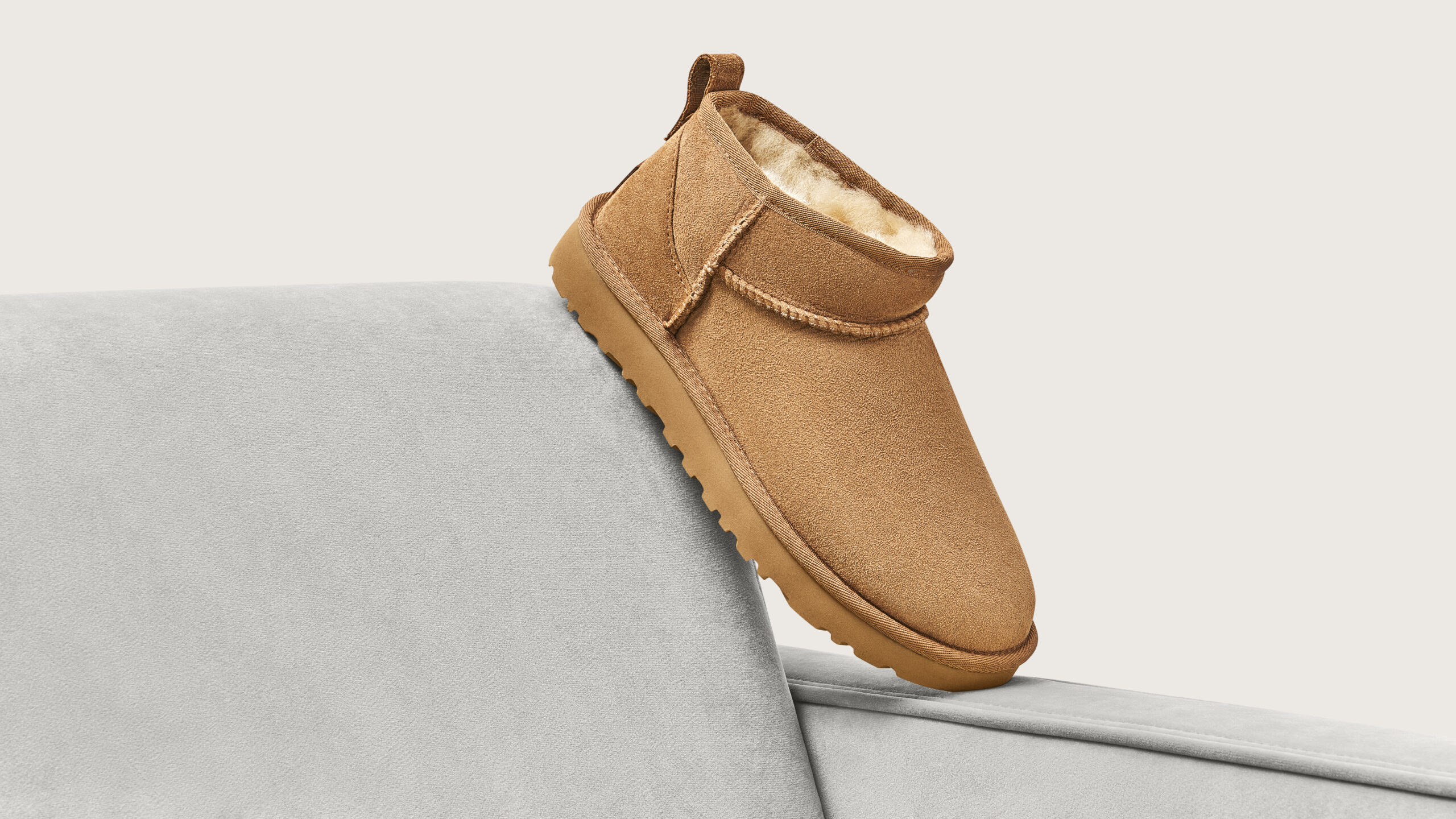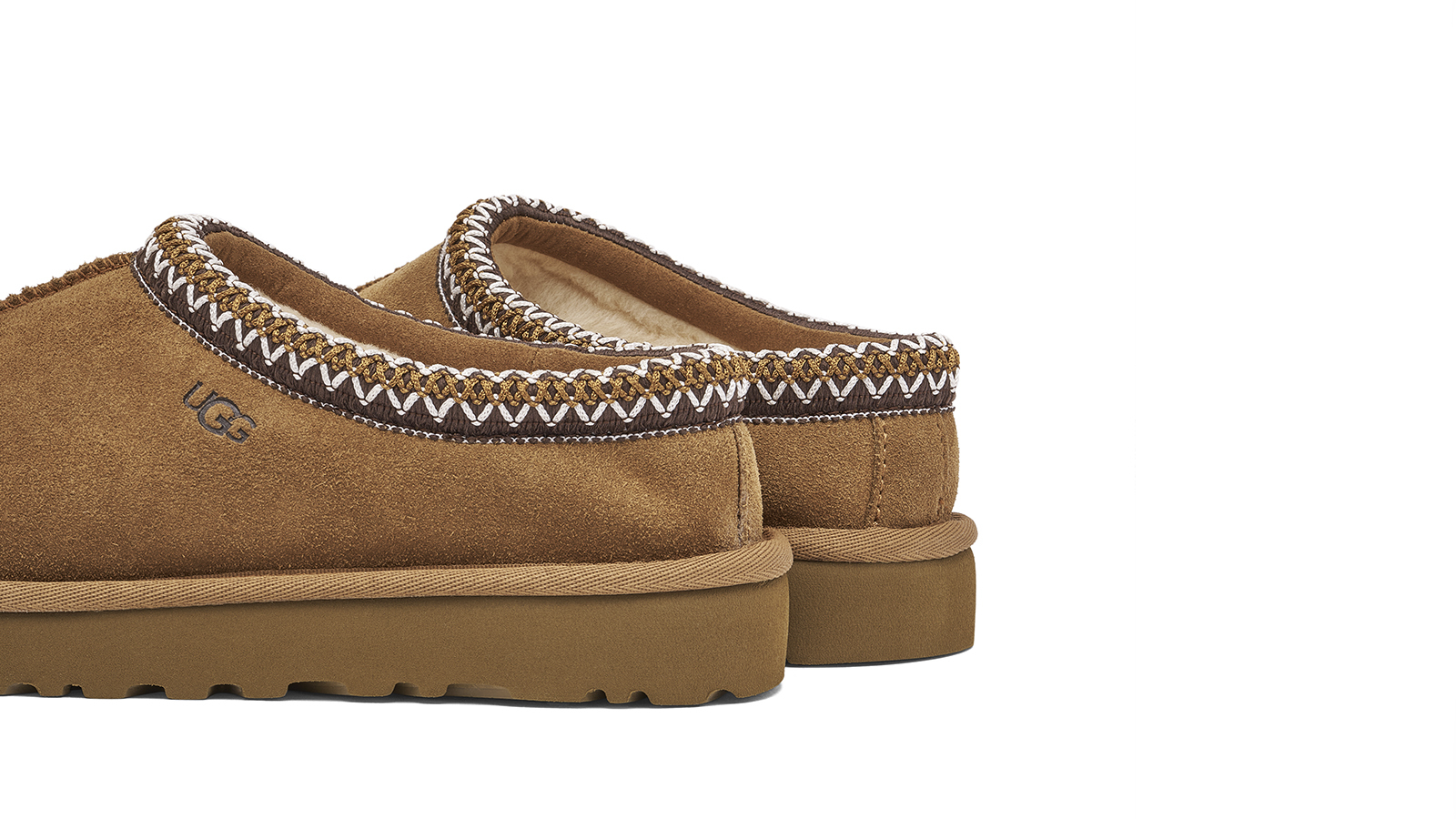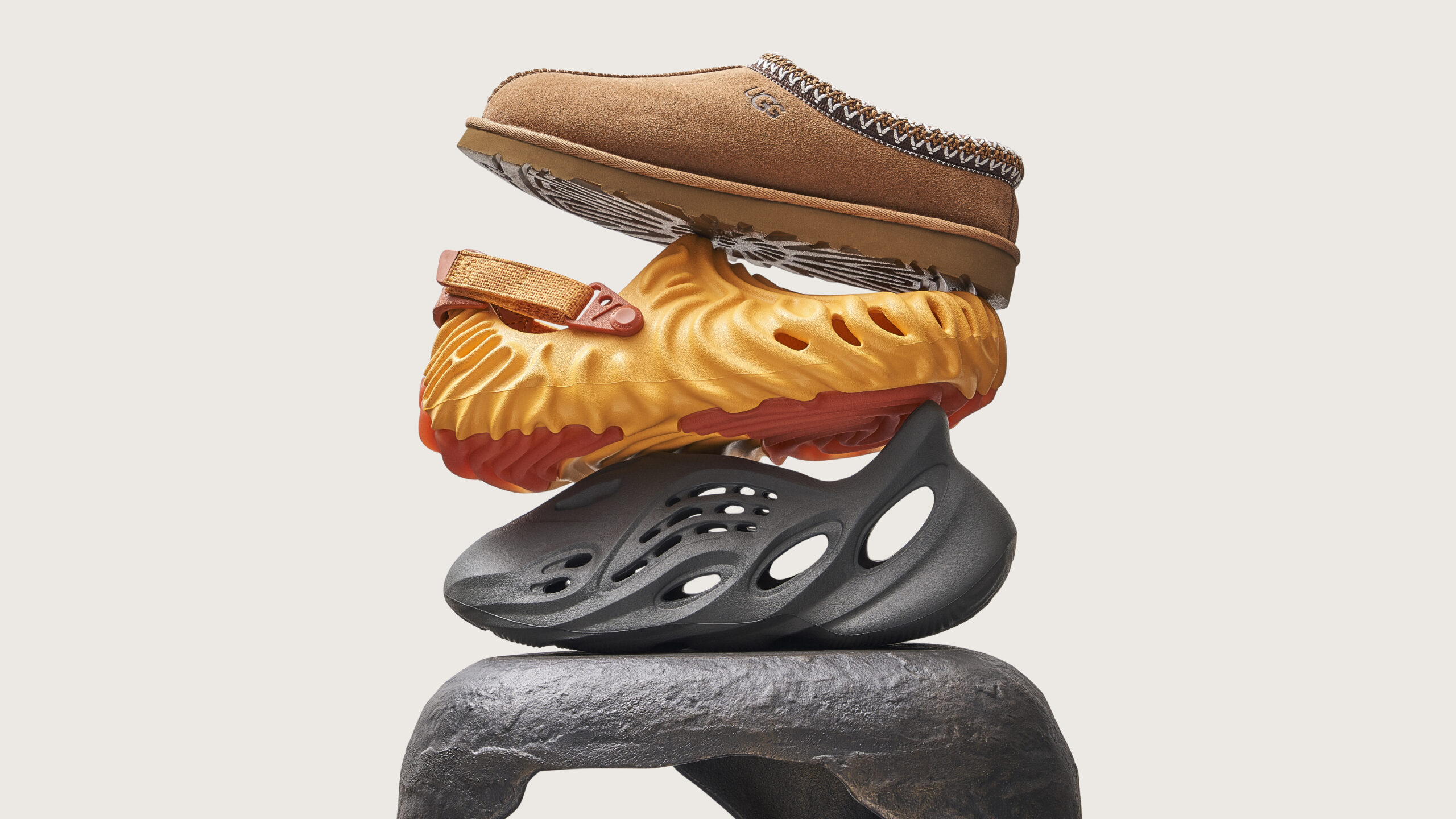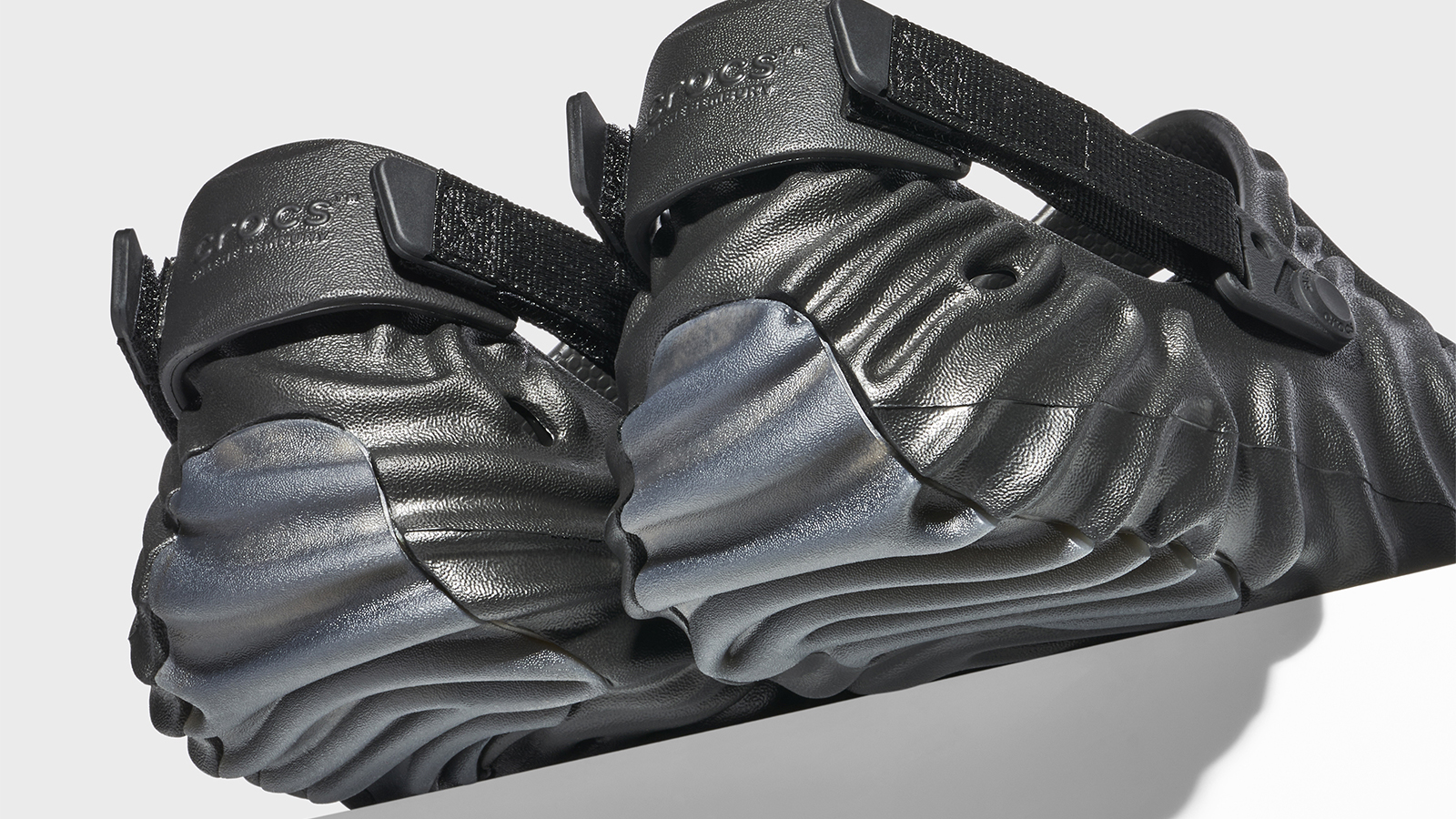The short answer is, yes. Absolutely.
Started by Australian surfer Brian Smith in California in the late 1970s, the term ‘ugg boots’ refers to a pair of unisex sheepskin boots that originated in Australia. Initially they were a utilitarian style worn for warmth (often by rural sheep shearing communities), but were adopted by the surfing community in the 1960s and later the UK in the 1970s.
The brand UGG (note the capitalisation), came out of a realisation that the style wasn’t yet available in the US market. The business grew steadily over the ‘80s and ‘90s, until gaining more worldwide attention when the US winter Olympics team wore the shearling lined boots in 1994.
UGG saw huge popularity in the early-mid 2000s, with the distinct soft tan upper and foam sole being seen on everyone from Leonardo DiCaprio to Oprah Winfrey. With a feature on Sarah Jessica Parker as Carrie Bradshaw in Sex and the City, UGG were firmly on the map as a style staple of the millennium.
UGG shoes became a staple sight globally, despite their divisiveness — the shoes were very much a love it or hate it style. Those that loved the comfort and status that owning a pair brought would often own multiple pairs, and were fiercely loyal to the brand, which by 2011 was garnering $800 million in sales, and two years prior saw the true mark of a global mega trend with officially confiscated fake pairs reaching over 20,000 within Britain alone, and three times that amount globally.
As with all hugely popular styles, however, UGG fell out of favour as tastes changed and trends moved on. The 2010s ushered in an era of sneaker domination that positioned sportswear brands like Nike and adidas as the casual footwear must-have. UGG sales saw a decrease of up to 12% in 2012, and the once widespread popularity of the slip-on style was well and truly waning.
After almost a decade of shifting the business focus away from footwear and into the home goods market (pushing products such as robes and loungewear), UGG began to see the glimmer of a comeback in 2018, with business growth being reported at 6% up year on year. How did a brand once described as ‘nothing more than a glorified slipper’ bounce back and find themselves with an 80%+ increase in searches in 2022?
Firstly, we need to look at the era in which UGG were able to make their grand return — global lockdowns. The pandemic forced most of us into isolation and ushered in the work from home era, which in turn is the perfect place for comfort focussed styles like UGG to replace other footwear styles like your favourite pair of Jordan 4s, simply due to the environment being more aligned with the brands offering.
Couple external factors like shifting lockdown-wardrobe priorities with an audience of Gen Z shoppers who weren’t around for UGGs initial popularity at the turn of the millennium. A group with spending power to the tune of $350 billion, and now make up around 25% of the potential customer base for products, and are a group of shoppers in which reportedly over 60% are likely to buy a product recommended by a trusted influencer or tastemaker — that’s a combination that can raise a brand from the ashes.
The catalyst for Gen Z’s adoption of UGG is likely in part down to the newer styles the brand have been releasing, such as the Tasman slipper, being shown on hugely influential figures like Bella and Gigi Hadid, Hailey Bieber and Emily Ratajkowski.
As with the previous explosion in popularity in the early 2000s, celebrity style endorsement has gone a long way in bringing UGG back into the mainstream as a trend.
Along with these endorsements comes the aforementioned new styles. Slip on, backless mule styles like the Tasman and the Mini Boot have capitalised on the recent popularity of brands like Birkenstock with the Boston and the surprising return of another divisive shoe, Crocs.
The ‘ugly shoe’ trend has been the driving force behind a lot of brands footwear output over the last two years, and UGG are very much at the centre of that trend, which has meant not only adoption by fashion’s most famous trendsetters, but also the hordes of online influencers who are able to routinely increase a brands exposure globally. UGG are now existing in the digital-first age, and have been quick to make themselves known and seen on the feet of seemingly every micro influencer with a platform of like minded followers.
Nostalgia too plays a big role in the return of UGG as a trending style. Whether it’s a return to a brand that you wore 10/15 years prior, or a sense of nostalgia for an era you didn’t grow up in (as is increasingly the case with Gen Z and the Y2K era of fashion), UGG show up in the endless archival imagery from that time that shoppers are looking to for their styling inspiration.
All the metrics point to UGG undoubtedly being back, but more than that, the brand feels perfectly positioned for a comeback right now. The right trends are aligning, the brands pricepoint feels accessible and the comfort meets cool combination that UGG have offered since their inception is exactly what people are looking for in the most pandemic world.



